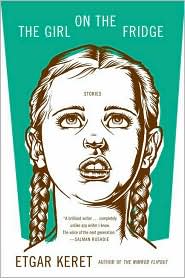Monday, December 29, 2008
Nona Caspers again. 2008!
Posted by
Anonymous
at
11:39 PM
3
comments
![]()
Labels: 2008, jordan gower, nona caspers, Sarah Marine, short stories
Sunday, December 21, 2008
Scratchy Recordings

I have a confession to make. I love music that is scratchy and recorded on a single audio channel. I grumble whenever a new Nina Simone recording is "remastered" to sound clean and crisp. Much of the allure of old music is to hear it as it was heard when it first came alive. Not that I don't appreciate the clarity in hearing Nina's bold, husky tones and knowing all that scratchiness is in her voice, not the speakers, but some music just sounds better with audio scratches. It's true.
So when co-worker and avid Oxford American reader/subscriber Carl Hoffman* showed me the heavy tome that is The Oxford American Book of Great Music Writing, all I had to do was scan the table of contents to know this was all I wanted for Christmas.
Contributors include Tom Piazza, William Gay, Kevin Brockmemier, Michael Perry, Roy Blount Jr., Beth Ann Fennelly, R. Crumb, Rosanne Cash, Steve Martin, a poem by Billy Collins and a short story by Ron Rash.
It gets better! How about diverse artists and themes such as Iris DeMent, R&B, The Allman Brothers, Lynrd Skynrd, family, Doc Watson, rockabilly, Eartha Kitt, Blind Tom Wiggins, southern heavy metal, Bessie Smith, Leadbelly and the Banjo.
On second thought, if $34.95 is more like the kind of cash money you need for groceries or to get mom some trinkets for Hanukkah, there is another option. And this one includes two CDs with 55 tracks!!
For $9.99, you can pick up Oxford American's annual music issue. It's a special treat.
There is a six-page piece by Kevin Brockmeier about little known folk music duo Elton & Betty White. Betty was 31 years Elton's senior, but that didn't stop this interracial couple from wandering around Little Rock and then Venice Beach in bathing suits and sequins playing keyboard and ukulele while singing songs about sex and love, but primarily about sex. While you may snicker at songs titled "I'm in Love With Your Behind" or "Climaxation is a Sweet Sensation" or "Menopause Mama", the piece is full of biographical information, sentimental childhood discovery, but mostly it's a lot of heart and sweetness and light.
In "I Hate to See You Go" we hear the standard issue blues sound of Little Walter as he moans about his woman leaving him, how badly he wants her back while humming into his little mouth harp (aka harmonica). But something about the sounds he makes and the simple drum line underneath it all has your heart aching with Little Walter and longing to hear more. The writing that corresponds with this song is nearly as brief and mostly talks about what a musical genius Walter was and it seems that with all his hits, he still got lost behind names like Muddy Waters. Everyone knows Muddy Waters, but who is Little Walter? Interestingly enough, the new movie Cadillac Records features a fictionalized Little Walter and he may just get his name on the charts one more time.
Not everyone is from the era of "scratchy recordings"** as indicated in the essay by Downer Schwartz bookseller favorite Jack Pendarvis. Pendarvis stalks Neko Case and his telling of this brief foray into tour bus life with a messy-haired, t-shirt wearing Neko who complains about her e-mails being uninteresting, is spirited and delightful. There is also a brief piece on the depth and beauty of Neko's solo music as well, for those of you who want serious music writing as opposed to a travelogue that will make you giggle with glee.
If you need a sneak preview (whatever you do, DO NOT open the plastic covered magazine at a store to peek at the insides of the magazine unless you really plan on buying it), check out OA editor Marc Smirnoff's liner notes for both of the two CDs included with the issue. Read some of these snippets and you will run right out and pick this bad boy up, take it home, pour it a nice single malt scotch and cozy up with it in front of the fireplace.
While most of the music is "old", the writings and perspectives are still fresh and bright. This is music that will have you closing your eyes, tapping your toes, uttering a few intermittent "mmm mmms" and dreaming of warm breezes and tall glasses of sweet tea.
*A big thank you to Carl Hoffman for his passion and excitement, without which I wouldn't have the aduitory and reading pleasure I am currently experiencing with the OA Southern Music Issue. I owe you one!
**"The Oxford American covers old music...mainly...though not exclusively. I would feel badly, I hope, if our looking back contributed to people ignoring great contemporary music. <...> My point is, simply, that there's room for a publication or CD that focuses on scratchy recordings. It's called variety."
-from Editor's Box: Baby I Love You by Marc Smirnoff, OA #63
Posted by
StacieMichelle
at
10:50 AM
1 comments
![]()
Labels: Elton and Betty White, Jack Pendarvis, Kevin Brockmeier, Little Walter, magazine, Neko Case, oxford american, southern music, southern writing, Stacie Williams
Tuesday, December 16, 2008
SPORTS! YES!
SPORTS BOOKS
by Sarah Marine
I’ve never been good at sports. I just don’t have that athletic gene. The closest I get to deliberate exercise is spending Sundays behind my sewing machine, facing the television, watching football. I mean, I still think about resurrecting Umbros (my friend Vanessa has)- but I haven’t been cool enough for fashion since like 2006. Cool enough for sports? Never. So there you go.
There’s a scene in Woody Allen’s Annie Hall that goes as such:
Wife: What is so fascinating about a bunch of pituitary cases trying to stuff a ball through a hoop?
Woody: What is fascinating is that it's physical.
That’s basically my argument…also everyone following the same rules.
The Encyclopedia of Surfing by Matt Warshaw
I have an ongoing, undeterrable obsession with surfing. It was set off by viewing the phenomenal by-Netflix-only sci-fi surf drama, John From Cincinnati, furthered by the fact that my landlord/downstairs neighbor surfs all year round on Lake Michigan, resulting in a basement littered with wetsuits and surfboards and then ultimately sealed by my purchase of the Encyclopedia of Surfing. Further reading has included Gidget.
In brief, the Enyclopedia is a goldmine of seminary facts about wacked out goofy-footed Aussies, dodging sharks and hazing grommets, mini reviews of surf movies, descriptions of waves everywhere from Indonesia to Oman to Imperial Beach. What holds my interest most recently in this huge book is the cataloging of coastline by these people. I mean, they’ve journeyed to Pakistani coastline, been confronted by groups of armed men and come away to tell that they found a young Pakistani boy living in a seaside shack, who would ride the tide on a piece of driftwood. Well, they’re probably lying, but anyway…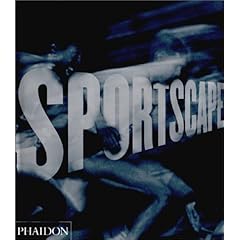
Sportscape by Paul Wombell
This monster from Phaidon has been a remainder at the Downer store for awhile- 20% at 29.99. It’s a collection of sports photography dating back to the early 20th Century. The evolution of the sports through integration, league regulations, technological advances and the rise of the celebrity of athletes in respective sports is subtly catalogued here in photographs. My favorite photos are the old boxing ones because “My god how does somebody just let someone else punch them in the face, for fun?” Really, it’s an important question. I also enjoy the shots of runners at the finish line.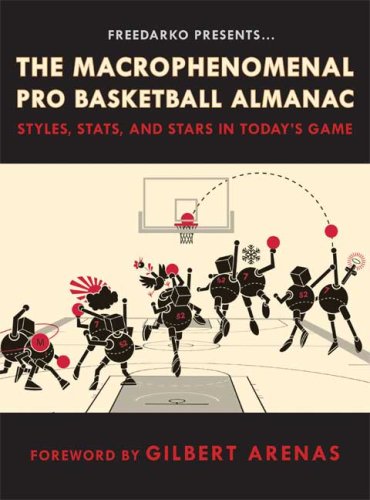
The Macrophenomenal Pro Basketball Almanac presented by FreeDarko
I dedicate this section of the blog post to my manager Doug James because I’m a suck-up and also because he coaches sports and likes basketball and things. This book wins not only for being a beautiful nod to an American sport dying in popularity but also because it takes chances with its topical and visual presentation of these basketball legends and outstanding newcomers. It includes charts gauging the level of anger to the number of points scored for one player, style guides for others and an overall highbrow modern take on the NBA and its players. Kind of makes me wish I had saved that Shawn Kemp Supersonics basketball card I was for some reason so fond of when I was eleven. Anyhoo, the book has also inspired a challenge which places Jordan and I against Doug- a 6’4” life-long athlete. We told him he has to play with his arms tied to his sides…its only fair.
Posted by
Anonymous
at
9:47 AM
2
comments
![]()
Labels: basketball, non-fiction-fiction, photography, reference, Sarah Marine, sports writing, surfing
Saturday, December 13, 2008
underrated, cheap, pretty (great gift books)
furthermore, all of these books are available at the Downer Ave shop RIGHT NOW! (for a limited time, i'm sure). so:
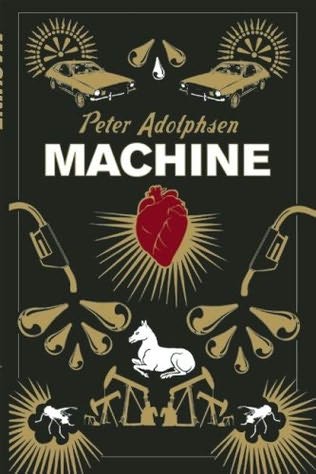 Machine by Peter Adolphsen ($15)
Machine by Peter Adolphsen ($15)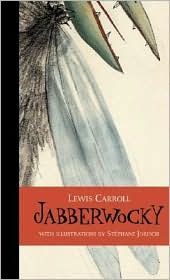
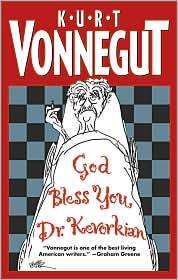
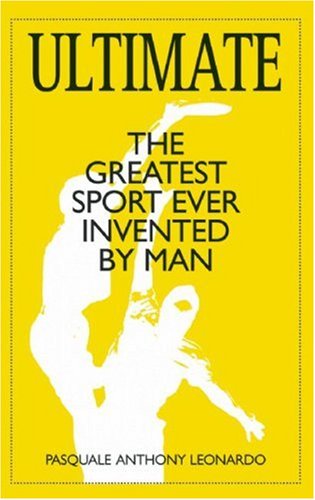


Wednesday, December 3, 2008
SARAH'S 2008 BOOKS FOREVER
by Sarah Marine
Now that you know who won all the awards, who made all the top lists, I present you with a group of titles that you should read instead.
FICTION:
Farewell Navigator by Leni Zumas, Open City Books
This is a sharp-tounged debut collection offering voice to an eerily aloof bunch of riff-faff. Leni Zumas tells of an unsettling America, one to run away from, one in which the least fortunate walk around bleating in the dark confusedly, but in the end, try to find their way back.
As A Friend by Forrest Gander, New Directions Press
A debut novel from an established poet, this book pries into the suffocating tendencies of obsession. Revolving around Les, Clay and Sarah narrate an unsettling tale of the man, his magnetism. An actor everyday, Les plucks at the obsessive, envious parts of people, inspiring in them startling emotive effects.
NON-FICTION:
Everywhere All the Time: A Deschooling Reader, ed. Matt Hern, AK Press
Handmade Nation: The Rise of DIY, Art, Craft and Design by Faythe Levine and Cortney Heimerl, Princeton Architectural Press
CHILDREN’S:
The Robot and the Bluebird by David Lucas
The Trouble with Dragons by Deb Gliori
Wonder Bear by Tao Nyeu
MISC:
Primitive Mentor by Dean Young, Pitt Poetry Series
Tales for Little Rebels: A Collection of Radical Literature, ed. Julia Mickenberg, New York University Press
Acme Novelty Library #19 by Chris Ware, Drawn and Quarterly
Jordan v. Machine
Our first (!) in a series of moving, talking book reviews brings Jordan in a steel cage match vs. Peter Adolphsen's Machine.
Who will win? Watch to find out.
(Hint: I haven't seen Jordan in a week...)
(Demand: become our YouTube friend and subscribe to our video feed.)
(Retro-demand: We know you've already subscribed to our blog feed... right?)
Tuesday, November 25, 2008
2666
by Bayard Godsave
2666 by Roberto Bolano
What is it about Roberto Bolano’s prose, especially in his longer books, The Savage Detectives and 2666, that is so immensely readable? 2666, despite all its expectations, opens not with a bang so much as a yawn. In a prose that is purely functional, it sets out to tell the story of a literary scholar, and later, the stories of his like-minded colleagues, and their obsession with a little-known German novelist with the improbable name of Benno von Archimbaldi. Still, I remember wondering, as I slogged through the first fifty pages or so, why I kept reading (partly, because it was the new book by Roberto Bolano, and I’d been looking forward to it for a long time), or, perhaps more accurately, I wondered why I had absolutely no desire to stop, why, in fact, I found it impossible to put down.
Of course, Bolano’s prose is a mercurial thing, and it should be no surprise that, as the book progresses, what begins in the manner of a workhorse, gives way to vividly rendered landscapes, to hilarious internal monologues, to nightmarescapes so terrifying they will haunt not only your dreams, but your waking thoughts as well—there is a scene towards the end of the book in which deserting Romanian soldiers during World War II crucify one of their officers outside a castle, high in the Carpathian Mountains, that once belonged to a Count named Vlad, who had a certain predilection for impaling, that I can still see vividly if I just close my eyes. And perhaps this is it: maybe it is the blankness of Bolano’s prose that accounts for its shape-shiftingness, that allows it to become the conduit for such visions. His writing might best be described as a kind of white space where past and present, dream and reality, fact and fiction, come together to create something that cannot be contained in such dichotomies, but can only be made apparent through their dissolution. As one of the blurbs on the dust-jacket points out, Bolano is a linguistic borrower, who borrows from everywhere, from bildungsroman, to fairy tale, to science fiction, to the crime report; a chameleon of pastiche, Bolano’s prose, and therefore his book, in the end contains everything; it is a postmodern realization of the totalizing modernist projects of writers like Ezra Pound, James Joyce and Gertrude Stein.
When I first read the book over the summer, I had one of those moments of readerly sychronicity, picking up The Deluxe Complete Guide to the Marvel Universe purely by chance, and reading the two alongside one another. I decided to approach the Marvel Universe, not associatively as I might normally have (going from Magneto to X-Men to Wolverine to Alpha Flight and so on), but alphabetically, from the first entry to the last. And the experience was not unlike reading 2666, which is broken into five tangentially related sections, whose order, at first glance, seems little less arbitrary than if they too were ordered alphabetically—of course, there is an underlying design behind their order, but that’s a whole other thing. Reading the two side-by-side made me aware of the strange connectedness of everything in Bolano’s book. It is a book which builds through subtle repetition, through motif. Just as, say, the story of the Eternals began to fill in for me through repeated references in seemingly unrelated entries in the Marvel Universe, so too the major themes (art, death, love, fate) in 2666 become apparent, through a kind of echo effect, subtle at first but soon impossible to ignore.
2666 is a book, like so many of Bolano’s books, that has at its center an absence: the disappearance of the writer Archimobaldi, a character who, even after the final section, “The Part About Archimbaldi,” remains a mystery. The book is a kind of Gestalt image, with Archimbaldi’s outline, like a ghost-image at its center—which, when you think about it, is not unlike the ghost of Jack Kirby, which haunts the Marvel Universe—but like any Gestalt, it is not merely the revealed image that is important, but the relationship between the image and the shapes arranged around it. The book, taken as a whole, is not about filling in the absence of Benno von Archimbaldi, but rather, it’s about how that absence shapes and haunts the universe around it.
Finally, and this brings us back to my original question, there is a certain urgency to all of Bolano’s writing. Until his death, he was thoroughly convinced of the importance of literature. The writer’s art was worth going penniless for, going hungry for, and even dying for. His had a Romantic view of literature, and the importance he placed on it is something we all want to believe in (all of us who read anyway), but that kind of Romanticism, in these cynical times, is nearly impossible for anyone over a certain age. Bolano’s belief burned strongly, and urgently, and it is that urgency that ultimately drives his narratives. And it is the foundation on which this book is built. 2666 contains so much horror, whether it is the Holocaust, the brutality of South American dictatorships, or the hundreds of unsolved murders of mostly women in Juarez which serve as the books center. But furthermore, it seems to rest on the assumption—and I’m inclined to agree with this assumption—that it is only through art, and writing specifically, that we can begin to confront, and possibly begin to make sense of all that horror, and the uncountable other horrors that have come out of the 20th century.
Friday, November 21, 2008
More Information Than You Require - John Hodgman

If, like me, you are constantly frustrated by the mainstream media's ignorance regarding the contributions made to our democracy by mole men, take heart*. John Hodgman, of internet and minor television fame, is ready to blow the doors off the vault of knowledge with More Information Than You Require.
It takes a rare breed to hang out on Twitter and go to Hollywood parties, plumbing the depths of situational notoriety in search of mole-manic rumor and sure thing bar bets to compile for his readers. I salute you, John Hodgman; you live the life so Doris Kearns Goodwin and David McCullough*4 don't have to, and that has made all the difference.
On a personal note, this book is worth buying simply to know why Milwaukee was destroyed by a violent downpour of skulls on February 12th, 1980. Having been born just nineteen months later, I never knew of this event, and probably never would have if not for John Hodgman and his wonderful lies*5.
* Genuine Hissfurther, you are not forgotten.
*2 As the kids and the robots call it.
*3 Much like the Oan Power Ring of Green Lantern fame.
 In brightest day, in blackest night,
In brightest day, in blackest night,No evil shall escape my sight
Let those who worship evil's might,
Beware my power...Green Lantern's light!
*4 Respected historians who write about 'actual' history, if that's what you're in to.
*5 Now I know why I find skulls every time I hang out at the beach. Whew! That's a relief!
Thursday, November 20, 2008
VIDEO, VIDEO
SET YOUR VCR'S!
We're working on something big here at the Downer shop. It involves books and moving pictures. Revolutionary, right? Here's how we're warming up, working the kinks out and quelling Jordan's stage fright:
stay tuned for the real thing, the bigger picture.
-sarah marine
Monday, November 17, 2008
Broad Vocabulary
This week brought the announcement of the closing of Milwaukee's only feminist bookstore, Broad Vocabulary. The Bayview neighborhood, south of downtown, was home to this lovely little establishment and the entire Milwaukee community, not to mention knitting groups, book clubs and others who regularly gathered on its bright couches, have lost a great bookstore.
This is just another reminder to all that nothing can replace the bookstore experience, the interaction with other readers and booksellers, the thrill of browsing and value of a good book, turning a page and building your own precious library.
here are some relatively recent titles related to feminist topics, that I love and think you should too:
Beyond Barbie and Mortal Kombat: New Perspectives on Gender and Gaming
I am by no means a 'gamer', never have been, but when I was in college, as a partial media studies kid, I picked up this book, which was very interesting with its theories on pretending from a first person gaming perspective.
from MIT Press: 'Beyond Barbie and Mortal Kombat' brings together new media theorists, game designers, educators, psychologists, and industry professionals, including some of the contributors to the earlier volume, to look at how gender intersects with the broader contexts of digital games today: gaming, game industry and design, and serious games. 
On Their Own: Women Journalist and the American Experience in Vietnam by Joyce Hoffman
I was just discussing with Dr. Godsave the difficulty Americans have to this day with negotiating a place in history for the Vietnam War. Although, I disagreed with John McCain's proposed policies and voted for Obama, I can't help but wonder if a sliver of his failure to be elected to president (twice) had something to do with the people's perception of our involvement in Vietnam as some kind of stain on our history- which I gauge entirely on the recorded popularity/approval ratings of that conflict. Well, in any case, this collection, like Journalistas, hopes to educate readers on the unique experience of females in the field and the newsroom.
Righting Feminism: Conservative Women and American Politics by Ronnee Schreiber
With Sarah Palin running all over the country at first calling herself a feminist and then saying she's not actually a feminist, I was really wondering what was up with all the flip-floppin' and ballyhoo. I heard this author on Fresh Air and was fascinated by the underground conservative women's movements and their open rejection of "mainstream feminism" or basically just feminism as we know it. Oxford University Press has their own great overview of the text here. This book is the first of its kind and really a must read for feminists of all waves and persuasions.
and a couple more:
One of the Guys: Women as Aggressors and Torturers, ed. by McElvey, Tara and Ehrenreich, Barbara
Her Best Shot: Women and Guns in America by Browder, Laura
Female Chauvinist Pigs: Women and the Rise of Raunch Culture by Levy, Ariel
Posted by
Anonymous
at
9:04 AM
1 comments
![]()
Labels: broad vocabulary, feminism, nonfiction, Sarah Marine
Tuesday, November 11, 2008
MILK.
"if a bullet should enter my brain, let that bullet destroy every closet door."
this quote is probably the most widely recognized legacy of the late (great) Harvey Milk, self proclaimed "Mayor of Castro Street". which makes sense as, considering the circumstances, it was really spot-on.
Tuesday, November 4, 2008
Celebrating the Rebirth of No Depression
 For 13 years, the magazine No Depression engaged and enlightened music fans across America. Initially focusing on roots (also known as alternative country or Americana music), but eventually branching out to embrace numerous genres, the founders balanced profiles of better-known artists with amazing discoveries.
For 13 years, the magazine No Depression engaged and enlightened music fans across America. Initially focusing on roots (also known as alternative country or Americana music), but eventually branching out to embrace numerous genres, the founders balanced profiles of better-known artists with amazing discoveries.
The founders, Grant Alden, Peter Blackstock, and Kyra Fairchild, ran their operation out of Seattle, counting on a devoted circulation mixed with advertising from indie music labels that were looking to find their audience.
By 2008, things were different. The chains and mass merchants had decimated the ranks of indie music stores that featured the magazine and its musicians, and the age of downloading helped finish the job (as well as killing off a number of chains). The music labels didn’t have the budgets to focus on a magazine, and readership started finding their information on web sites.
But as Grant says on his recent NPR interview, where on the web is there an audience for a 10,000 word essay on Little Miss Cornshucks?
A change in format has led to the magazine’s rebirth as a bookazine, or what we in the industry would call a literary journal. Think of it as the esthetic of a McSweeney’s, Tin House, or Granta, but with a music focus.
The comparison is not out of the blue. Many Schwartz booksellers have long been fans of No Depression. I am reminded of Nick Hornby’s essays, where he balances writing about his book obsession in Polysyllabic Spree with his musical ones in Songbook. And of course the fate of the mu sic industry may foreshadow what is to happen over the next few years in books.
sic industry may foreshadow what is to happen over the next few years in books.
Several contributors to No Depression straddle both worlds. Eric Brace is a former Washington Post staffer who leads the Nashville-by-way-of-DC-based band Last Train Home while singer-songwriter Peter Cooper covers music for the Nashville Tennesseean.
These multiple talents must be a requirement for participation. Photographer Deone Jahnke (whose work in the new volume includes the arresting front jacket photo) is also a visual artist and writer. Her collection of portraits includes many folks in the alt country world, but you’ve also seen her work at the Lakefront Festival of the Arts for the last few summers.
And just to bring it all home to bookselling, while No Depression-aires Blackstock and Fairchild still operate out of Seattle, fellow editor Alden now lives in Kentucky, where he helps out at the family bookshop, Coffee Tree Books. Why not go to their site and buy something from them?
How does this all connect to the Downer Avenue Schwartz? Well, on Sunday, November 9th at 4 P.M. (after the Packers game), we are hosting a spirited discussion with Deone Jahnke, Eric Brace, and Peter Cooper on music, pictures, and journalism.
Then at 7:30 P.M. the same evening (11/9), you can head to the Fifth Ward (or alternately, the northern edge of Walker’s Point), where Brace and Cooper are performing as part of Deone Jahnke’s “Rock the Loft” music series, held at Jahnke’s photography studio, 228 South First Street. For more information on this event, contact deone@deonejahnke.com.
It’s all a celebration of the rebirth of No Depression, and we’re happy to help spread the word.
Friday, October 24, 2008
The Manual of Detection - Jedediah Berry

Star detective Travis T. Sivart is missing. More Phillip Marlowe than Sherlock Holmes, Sivart has been responsible for unraveling the strange crimes of arch-villain, and master of disguise, Enoch Hoffman, ever since Hoffman and his Travels-No-More Carnival occupied the outskirts of the city. Now, with Sivart having disappeared, the city is sliding into chaos; citizens are trapped in fugue states and engaging in strange behavior; signs that Hoffman is making a play for control of more than just the ragged big top under his purview abound. Enter Charles Unwin; a lowly clerk in the employ of The Agency, the solvers of mystery and protectors of the public good. Unwin is, if not happy, then at least content to be the chronicler of Sivart’s cases; collating facts and compiling the exploits of derring-do that Unwin admired but never wanted to experience. Improbably, Unwin is whisked into the world of sensible hats and shoulder holsters in Sivart’s stead, given nothing more than the seventeen slim chapters that serve as the book’s title to go about finding his famed predecessor.
But even that resource is thrown into question, as a strange dream encounter with Sivart reveals the existence of an eighteenth chapter excised for field operatives. Unwin sets out reluctantly to find Sivart in the hopes of everything going back to normal, armed only with a head for detail and a sleepy secretary in love with the life of a detective. Normal falls by the wayside early on, as Unwin proceeds to uncover the actual status quo in the city; a strange balance between falsely resolved mystery and hidden connections whose exposure throws the work of both The Agency and The Carnival into question.
Most appreciated about The Manual of Detection is that, though it is a strange world we’re dropped into, there is no overt attempt to beat us over the head with explanatory exposition. The city is totally noir, phonographs are still en vogue, a giant steam-powered truck serves as conveyance for dead-eyed henchmen, and the gin joint next to the cemetery is the place to ask your questions. The standard detective story archetypes are well-represented but smartly tweaked adding a layer of the fantastic that enhances the story without hijacking the tone.
Jedediah Berry’s first full-length novel is wonderful. With boundless imagination and razor keen characterization, he has delivered a smart, fun story that appeals to the mystery lover and the magical realist fan all at once. The Manual of Detection is strange without being silly; intricate without being minutia-laden; whimsical while still keeping the reader riding the secret subway and plumbing the depths of the hidden catacombs in an attempt to stay one step ahead of gunmen and deranged puppet masters.
Posted by
Justin Riley
at
11:48 AM
4
comments
![]()
Labels: debut fiction, fiction, Jedediah Berry, Justin Riley, magical realism, noir
Sunday, October 19, 2008
Stacey D'erasmo in a Black Hole with a bunch of galleys.
I had a dream last night in which I am walking down a city block and about ten kittens are running towards me and what do I do? what do I do in this dreamy dream? I TURN AROUND AND WALK IN THE OTHER DIRECTION My evil, silly dream-self walks away from a bunch of eager kittens. gah.
1. Am currently reading Stacey D'erasmo's forthcoming novel with the unfortunate title The Sky Below. It's about a gay, Gabriel, and his best friend Sarah and their journey through college in Arizona to their life in NYC. The writing is kind of shallow and the time span so far (I'm halfway through) is so vast it doesn't allow much for exploration. There are some very lovely scenes from Gabe's childhood in Maine and swamp adventures with his sister in Florida, though. It came to mind that this book could be about my friendship with certain other bookseller whose name begins with a J and ends with an N, you know because he's of that gay persuasion and my name is Sarah, but then there's a situation with a platonic bath and it pretty much all went out the window. However, after sharing info with J----N on the plot development, I'm relatively certain that "the platonic bath" will remain a staple insult/inappropriate proposition for the indefinite future.
2. Also, on the current reading list is Black Hole by Charles Burns. Love it/can't read it before bed or all dreams become nightmares in which people have tails and these tails break off at the tip with an unsettling cracking noise. Godsave loves the drawings of the insides of the various apartments, also Burns' ability to portray kids smoking reefer in a real way. I like how he draws water and relating to the teenage girl who goes with the wrong guys and ends up sleeping in a tent in the woods. The depth of setting is the black hole. Walked down to the lake with Godsave and a thermos of saucy hot chocolate last night. I think this adventure was partly inspired by this novel and contained a grain of anticipation for running into some kids with "the bug" along the spookedy ravine trail.
3. Don't Cry by Mary Gaitskill. I really enjoy these stories, but much like the Miranda July, it is difficult to read many in succession, at one time, for it leads to a bleeding together of plot and character. Also, her tendency to write dryly about sex and deviancy, is something to be taken in small doses and generally a style I disdain.
4. Current galley waiting list:
One DOA One on the Way by Mary Robison
Book of Clouds (title already one strike against it) by Chloe Aridjis
Invite by Glen Pourciau
the Art of the Commonplace: the Agrarian Essays of Wendell Berry
not a galley but at the top of the pile is Starman: Night and Day.
Im gonna go make some bacon pancakes now.
Tuesday, October 14, 2008
UNLEARNING EDUCATION
by sarah marine
THIS REALLY GOT ME GOING.
Taking bookselling very seriously, not in an uptight sense, but in that you seek out the highest quality of literature and share it with those around you, is what we do full-time at the Downer store. We know our customers by name, what they've read in the past and use that knowledge to recommend titles for them in the future. In turn, it isn't uncommon for someone to come in and basically have a meltdown if Stacie isn't around to tell them her opinion on a new title, it happens often that customers that have been supporting us for decades will, without fail, honestly ask every bookseller he sees what they are reading. In most cases each bookseller has their own personal book club. But it's not only these instore exchanges that keep the store alive- the vitality also comes from the collective conscious effort of every one of our booksellers to support other independent businesses in the neighborhood and Milwaukee, completely.
I've been reading some nonfiction as of late. A great friend Carl Hedman, with whom I worked last summer to establish the People's Books Co-op here in Milwaukee, has been steering me in the direction of a variety of superb pieces of work which deal with de-schooling, critical pedagogy and a variety of other educational philosophies which came to rise in the 1970's. He also informed me of his own venture with David Schwartz in establishing a free family school right here in Milwaukee some thirty years ago. I have never been a great student, I was quite the Max Fischer in my day, and these have really helped me to understand the downfalls of compulsory, competitive education and how today we should work to move away from these institutional practices toward a more personal and beneficial pedagogy aimed at creating positive student teacher relationships centered around a real education.
Here are a few of the books currently holding my attention:
Everywhere All the Time: A New Deschooling Reader edited by Matt Hern
From Leo Tolstoy, Ivan Illich, and Emma Goldman to John Taylor Gatto, John Holt, and Grace Llewellyn, Matt Hern has compiled an impressive cast of educational pioneers to aid parents, kids, and teachers in the quest for effective learning strategies.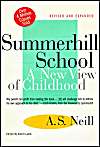
Summerhill School: A New View of Childhood by A.S. Neill
As American education lags behind the rest of the world, this new edition is more timely than ever. The children of today face struggles far greater than any previous generation and we, as parents and teachers, must teach them now to make choices for themselves and to learn from the outcome of their decisions. 
Adventures in Steiner Education by Brien Masters
This book outlines the basic structure of the journey through the Upper School in the Waldorf Steiner tradition.
Tuesday, October 7, 2008
Crisis! (exclamation duly deserved)
Everyone has a right to his or her own religious beliefs. But we all have and equal duty to work for the dignity of all human beings. (Elke Kennedy)
Let me be clear: I suffered more fear and numbing anxiety from my "secret" as a teenager than I did from racism and segregation in Philadelphia in 1950. I can only imagine how my life would have been transformed and enhanced without the cloud of religion-based bigotry punishing me because I was born black and homosexual. (Rodney Powell)
To label as sin a person's sexual orientation is an act of spiritual violence. It defines the personal core, the very essence of a young person's identity, as sinful. Believing you're a sinner because you're LGBT creates a severe emotional and mental anguish, especially for young people. (Jimmy Creech)
Misinformation from a church that probably taught her she could somehow hate the sin but not the sinner... from an education system that never gave her accurate information about the nature of sexual orientation... from a community that made her intolerant of difference and afraid to accept her son as he truly was. In the end, it was not her fault alone. (Kevin Jennings)
What is often overlooked is that straight people also have conversations in which their attraction to the opposite sex is discussed, but in their case it is not called coming out - it's called talking. (Barney Frank)
I don't want parents to feel they must tell their children not to be who they are in order to keep them safe. I want them to know that the healthiest thing they can say is, "Be who you are, and we'll work to make the world safer together." (Tammy Baldwin)
Posted by
jordan
at
2:17 PM
6
comments
![]()
Labels: Crisis, epidemic, essays, jordan, LGBT, Mitchell Gold
Monday, October 6, 2008
diggers digging, fingers typing, pages turning, noun verb, etc.
by sarah marine
I'm sitting in my library contemplating silence whilst diggers and dumptrucks do their thing in the parking lot next door. Ah, construction. It makes for a very unfriendly reading environment. Therefore, you get a blogpost about what I'm thinking, which is quite lucky- because I know it's what you live for.
The past couple days have been those lovely Wisconsin ones involving the harshest transition from 80 degree days to 50 degree days. Thankfully, I LOVE WINTER...and, thankfully, nothing says winter like Ander Monson. However with the season still much too far away from warranting Other Electricities, I picked up assorted fire events by David Means. It is the perfect foreword to its Monson Michigan companion (who I guess is teaching in Arizona now, which boggles the mind).
Means' description: "the wet mulch stench of the forest floor and the vast emptiness that the Upper Peninsula offers, that stony wilderness scratching the back of the of the greatest freshwater body in the world, a lake deep enough to swallow whole freighters..." geez. Why anyone would want to live anywhere but the glorious midwest is beyond me. It's beyond.
If I could have dinner with any five writers, living or dead, writers whose conversations could veer from the personality of freight trains, to various sounds of walking on snow, to the year-round cold of the Great Lakes it would be these:
1. Richard Hugo
2. David Means
3. Ander Monson
4. John Ashbery
5. Mike Balisle
*6. Bayard Godsave, of course.
Together with Ashbery's April Galleons and Frank Miller's Daredevil series, I have been very very pleased with current literary companions. Thinking about the future, cant wait for new Sarah Vowell and Chris Ware! Have also been obsessively checking iPage and IBID and everywhere for The Art of Recklessness, which is supposedly a prose collection by Dean Young that was scheduled to come out this year- I mean, literally mentioned in the same breath as Primitive Mentor(January 2008).
PS. IF YOU HAVENT REGISTERED TO VOTE OR NEED TO CHANGE YOUR ADDRESS OR DESIRE ANY KINDS OF INFORMATION REGARDING THE ACT AND ART OF VOTING, THE OBAMA-LAMAS HAVE MOVED IN NEXT DOOR THE DOWNER SCHWARTZ LOCATION!
Posted by
Anonymous
at
9:26 AM
7
comments
![]()
Labels: Ander Monson, comics, midwest, poetry, Sarah Marine, short stories, winter
Thursday, October 2, 2008
Timothy McSweeney's Vacation Video: v1
Timothy McSweeney sneaks his own Junior Mints and popcorn into the theatre.
Courtesy of our good friends at Vital Source.
(Stay tuned for the next installment.)
Posted by
Jay Johnson
at
9:40 AM
2
comments
![]()
Labels: at the shop, deb olin unferth, eli horowitz, event, fiction, McSweeney's, video
Tuesday, September 30, 2008
exploits and adventures

I was so moved by my own words and by the fine position which I had taken up, that my voice broke, and I could hardly refrain from tears.
Posted by
jordan
at
7:46 PM
2
comments
![]()
Labels: adventure, Brigadier Gerard, Doyle, jordan, NYRB, short stories
Monday, September 29, 2008
I'll see your bailout and raise you one dragon and a robot
by sarah marine
You know what makes more sense to me than "bailout"? Huh? Do ya?
Robots...and dragons. That's right. Here are a couple of children's books, out this fall, that will definitely make you the coolest auntie/uncle, ma/pa, friendo/super-friendo, republican/democrat/independent to ever lose/not lose money in the last fourteen days.
The Trouble With Dragons
by Deb Gliori
This cautionary tale of critters from all corners of our precious globe coming together in harmony to dispel the wasteful behavior of the careless dragons is an uplifting addition to the works of Deb Gliori. Brightly illustrated with thoughtfully detailed panoramas, The Trouble with Dragons helps to educate children on the importance of respecting our surroundings and teaching others-even stubborn dragons- the same.
The Robot and the Bluebird
by David Lucas
A gentle robot finds himself marooned in a trash heap after learning that his robot heart is broken beyond reparation. A little bluebird, however, flutters into the picture and the gentle robot offers the space where his heart used to be as a shelter for the bird against the cold winter outside. Together they then head south, where the journey and this wonderful tale will surely find its own place in your own clever heart.
Also, to all the hearty housewarming party-goers, I salute you- had a blast.
Wednesday, September 24, 2008
State by State comes to Wisconsin

State by State is a documentary of 19 out of 50 writers reading from their essays collected in the anthology of the same name. It was created via the unstoppable Powell's Books creative endeavor titled Out of the Book. The purpose of this project is to bring books, authors and short film together in new and exciting ways.
So, State by State: 50 writers, 50 states, 50 essays. Not to mention some fabulous tables - but that's just in the book. The documentary showcases authors Daphne Beal, Alison Bechdel, Will Blythe, Charles Bock, Anthony Bourdain, Susan Choi, Joshua Ferris, Dagoberto Gilb, Myla Goldberg, Paul Greenberg, John Hodgman, Heidi Julavits, Rick Moody, Susan Orlean, David Rakoff, Said Sayrafiezadeh, Ellery Washington, Matt Weiland, and Sean Wilsey. All these marvelous folks in one place - it's like 19 authors appearing in your store!
On October 2nd there will be a screening of the documentary, plus an appearance by co-editor Matt Weiland and two guest authors. Should be good stuff! The event begins at 6:30pm in order to precede the V.P. debates going on that same evening.
Check out the trailer, then come to the event! It will be more light-hearted and satisfying than any political seizures that might occur should you stay home to watch Palin & Biden battle it out. We guarantee it.
Posted by
StacieMichelle
at
4:46 PM
2
comments
![]()
Labels: documentary, event, matt weiland, out of the book films, powell's books, state by state
Tuesday, September 23, 2008
Let's Get Critical! Critical! Together
Tom Frank, best known for What's the Matter with Kansas?, will be speaking at our shop on Monday the 29th. While it is a ticketed event - you buy a book from us, you and a guest get to sit down and listen to Frank and maybe as a question - the shop will also be open to the public, per usual, during the ticketed event. (We like to think that this "ticketing" might actually allow us to pay some employees and rent by bringing the community interesting and pertinent opportunities for discourse with nationally-known authors.)
I haven't read much Frank, but am familiar with the work's ideas. I have read Mike Davis' very excellent refutation of some of Frank's thesis from Kansas. In "What's the Matter with America?" (found in Haymarket's In Praise of Barbarians: Essays Against Empire), Davis smartly questions if the proletariat is voting against its own self-interest by voting for Bush in 2000 and 2004 by pointing out that many of their jobs, for instance, were exported as a result of NAFTA - which just happened to be a Clinton thing.
Unfortunately, this essay isn't available online. Another fine piece by Mike Davis is, though: "The Democrats After November", from the New Left Review. Read it. This essay appears directly after "What's the Matter with America?" in In Praise of Barbarians.
Some more Mike Davis love: a trailer for a documentary based on his book, Planet of Slums.
My raising of Mike Davis' excellent criticism isn't a specific knock on Frank. In fact, it's an attempt at fostering some (post-partisan?) critical thinking. There's a lot of "Rah-Rah" political rhetoric available, but pragmatism is worth more in my book. Davis, as a "socialist", offers a critical approach outside of the Red-Blue spectrum. It's easier for him, perhaps, to see the complicity of Corporatist policies, whether pushed by the GOP or the DLC.
That said, Frank's Wrecking Crew - the book he's touring - deals with a particular problem: that of crony capitalism (h/t Al Giordano, per usual). This is a very real issue, especially with the new implementation (admission?) of socialism for the rich through the public subsidizing of traders', managers' and investors' fleecing them out of their own money. I'm not sure if there's anything about telecom deregulation in the book.
So, c'mon over to the shop next Monday and ask Tom Frank what we can do to fix the problem of crony capitalism.
Monday, September 22, 2008
HANDMADE NATION, WI

Faythe Levine and Cortney Heimerl's new love letter to the DIY community has arrived at the Downer store. Having attended the first rep. night I was lucky enough to swipe this ahead of time. This book is invaluable in its very humble presentation of some of the hardest working crafters in the nation. Faythe is our own renaissance lady; co-owner of Paper Boat, organizer of the righteous Art vs. Craft and overall champion and supporter of all things indy creative. We are so lucky to have her. The book is in paperback and very affordable.
You can view the trailer for the documentary also entitled Handmade Nation, here.
Friday, September 19, 2008
Two Short Novels
by sarah marine
I've revisited some of my older posts today and was taken aback by serious grammatical and typing errors. I just get so excited and ahead of myself and "publish post" just looks so nice, and many of you know how well I deal with what one would refer to as "red buttons".
Anyhow, I read a book yesterday. It was a great book. I've been waiting for it to come in and finally, well, it did. Before getting to the meat of this 106-page monster, let me preface by attributing my 2008 obsession with very short novels to a subconscious longing to temper Godsave's own attraction to things like Omega Minor and 2666 and Celestial Harmonies and currently, The Recognitions. We need a balanced library, a harmonious middling of texts. So, there. I will now talk to you about two of the best short novels from my 2008 file.
Forrest Gander's 'As a Friend' begins with a birth. It's no brief foray and does not spare the reader much for details.
The daughter pushes, exhausted, her body like an animal on top of her, devouring her. Not coming, she begs. Not coming out! Can't breathe!
The mother in this scene, stands at the door, witnessing her obstinate teenage daughter ignoring the pleas of the midwife to breathe. The resentment here is of great scale and Gander communicates this and the eventual win of maternal instinct, through superbly succinct and effective storytelling. The second act of this novella tells of this child born, Les, in adulthood. The man is magnetic, an actor everyday, plucking at the obsessive, envious parts of people.
There is drama here, but the setting, the rural south is the dynamic cradle holding these relationships, dizzying things further. The surveyors, in the bush, the heat, the gnats- and Clay driven quietly to mimic, become Les. The third act chronicles Sarah, Les's mistress in the aftermath of tragedy. Gander, a poet first, finely channels the craft in this part. 
As a day student at a boarding school, I had opportunity to exist in this unusual educational environment. It was quite peculiar, children being on their own, teachers burdened with the responsibility of parenting unruly teenagers, most of them brilliant but also homesick and proud. Now, I rarely pass up any fiction chronicling experiences at these types of institutions. Discovering Fleur Jaeggy this year has been a highlight of my literary wanderings.
At fourteen I was a boarder in a school in the Apenzell. This was the area where Robert Walser used to take his many walks when he was in the mental hospital in Herisau, not far from our college. He died in the snow. , begins the novel.
'Sweet Days of Discipline', mirrors 'As a Friend' in story, mostly for its satellite tellings of intense friendship and the insight into the obsessive, almost erotic feelings of one character toward the other. Eve, in this instance, possesses a natural independence. However, her interest in and attraction to the new girl, Frederique begins to rule her. At the greatest height of her anxiety over remaining in Frederique's sphere, she wonders what she might not obsess over. Jaeggy's prose is highly concentrated. There is nothing floral about it. The reader can feel the control of language and very deliberate construction of character.
Also remarkable is Jenny Erpenbeck's 'The Book of Words' which is written from the perspective of a young girl during an unnamed war in an unnamed Latin American country. It is outstanding...and also really difficult to handsell. Also very difficult to handsell- 'Inglorious'. My god, if I could just convince one person to read that book. Jeez.
Friday, September 12, 2008
Curl up in a Little Neurotic Election Coverage Ball with These Great Books!
by Sarah Marine and Joe Lisberg
On a rainy Friday night, a jump and a skip from the shores of the Great Lake Michigan, two frazzled booksellers made a decision.
As young Americans, healthily staying abreast of all things election-related, these two took back the former semblance of their universes and, once again, put books first. Henceforth, this list was compiled as an offering of suggested titles to quell anxiety, restlessness and exposure to dangerously high levels of election politics. Enjoy.
1. Baron in the Trees by Italo Calvino
Get on up there guys. Leave it all behind, all those media blogs, news tickers and soundbites. It's so quiet up there...breezy and quiet. Ahhhh.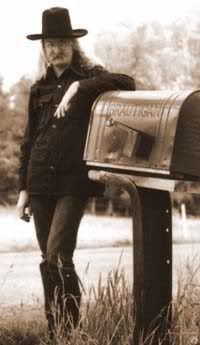
2. The poetry of Richard Brautigan
How peaceful it is to think of cybernetic forests where the beasts of the wood co-mingle so graciously with the whirring computers.
3. The Odyssey by Homer
A tale of old for media escapees of all ages. 
4. Daredevil by Marvel Comics (Frank Miller, Ed Brubaker, etc.)
Abandon the glowing box and join the horned hero of Hell's Kitchen as he metes out a little street justice; clobberin' thugs and gangsters like only a blind super-hero lawyer can. Check it out, I dare ya.
5. Street of Crocodiles by Bruno Schulz
Crooked streets, mysterious shops populated by chimerical relatives: a bright departure from your everyday shuffle from Politico to The Page and beyond. It's different. It's like being on just the right drugs. Don't do drugs.
6. Willful Creatures by Aimee Bender
Oh, my. This is the cure. Go on a bender. Don't go on a bender. Get bent. Wait. Oh, my.
7. Duino Elegies by Rainer Maria Rilke
Rilke tackles the issues head-on with this prolific volume- fig trees, nosing beasts, terrific angels, uncaring ponds. He's on top of it, guys...all for you.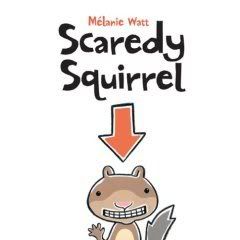
8. Scaredy Squirrel by Melanie Watt
What are you afraid of? Nuclear stockpiles? Dictators gone nuts with power? Partisan bullies? If so, Scaredy Squirrel will bring you back to what remains at the real core of terror- killer bees, green Martians, tarantulas, poison ivy, germs and toothy, hungry sharks.
9. Girl on the Fridge by Etgar Keret
I want to say something here about Keret being Israeli and how the news is always reporting on the conflicts there, you know, connect it in some way, but really I don't know how to be smart about it AND funny...like Keret.
10. Things I like About America by Poe Ballantine
The fact that Poe Ballantine is this middle-aged guy living in Nebraska just kills me. Furthermore, the thing about the things he likes about America is that they're really not things you attribute "like" to- they just are- they're meals and conversations and bus rides and paying rent...important things to think about besides projected electoral counts.
Posted by
Anonymous
at
7:51 PM
2
comments
![]()
Labels: election woes, Joe Lisberg, overstimulation, Sarah Marine, saving your sanity one book at a time





